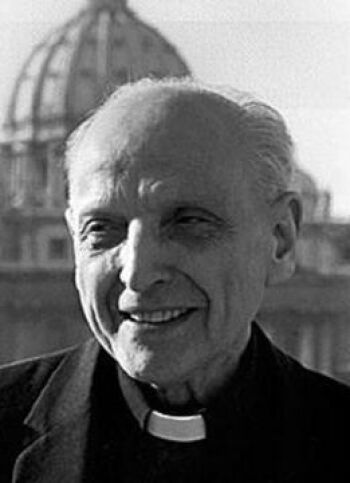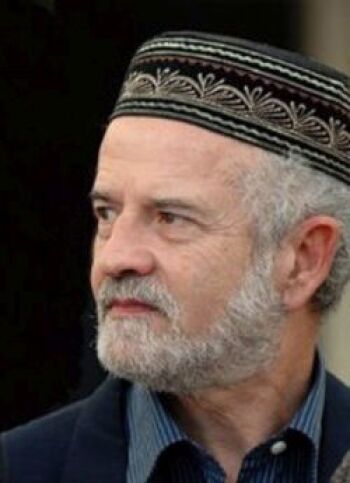Religion: Religious Leaders Post-1900
Ángel Herrera Oria (1886-1968)

Religion and Branch: Christianity (Catholicism)
Title: Cardinal, Politician, Journalist
Ángel Herrera Oria was a prominent figure in both the religious and political spheres of 20th-century Spain. He played a significant role in the Catholic Church, journalism, and politics, leaving a lasting impact on Spanish society.
Before his ecclesiastical career, Oria was deeply involved in journalism. He was the director of the influential newspaper El Debate, which was linked to Catholic teachings and played a pivotal role in shaping public opinion during the turbulent years of the Spanish Second Republic.
Oria was active in politics during the era of the Second Spanish Republic. He was an advocate for the rights of the Catholic Church in the face of anti-clerical laws and measures. As a layman, Oria was the founder and president of the National Catholic Association of Propagandists, which aimed to strengthen the influence of Catholic principles in Spanish society.
In a notable shift in his career, Oria was ordained as a priest in 1940 and appointed as the bishop of Málaga in 1947. His tenure as a bishop was marked by his commitment to social issues, education, and the spiritual nourishment of his diocese.
Oria was elevated to the rank of cardinal in 1965 by Pope Paul VI. He participated in the Second Vatican Council (1962-1965) and contributed to its proceedings and outcomes, which aimed to address the relationship between the Catholic Church and modern world.
Oria stands out as a significant figure in Spain's 20th-century religious landscape due to his combined roles in journalism, politics, and ecclesiastical leadership, reflecting the intertwined nature of religion and public life during that era in Spain. He's remembered for his contributions to journalism, defense of the Catholic Church's rights during politically challenging times, and pastoral work as a bishop.
Josemaría Escrivá (1902-1975)

Religion and Branch: Christianity (Catholicism)
Title: Saint, Priest, Founder of Opus Dei, Author
Josemaría Escrivá was a Spanish Roman Catholic priest who founded Opus Dei, an organization of laypeople and priests dedicated to the teaching that everyone is called to holiness by God and that ordinary life is a path to sanctity. Born as José María Mariano Escriva y Albás in Barbastro, Spain, Escrivá felt a call to the priesthood at a young age. He was ordained in 1925 in Saragossa.
In 1928, Escrivá founded Opus Dei (Latin for "Work of God") with the vision of spreading the message that work and the circumstances of everyday life are occasions for a personal encounter with Christ. The organization promotes personal piety and sanctification through one's professional work. From its origins in Spain, Opus Dei grew to become a global organization with a significant influence in the Catholic Church. Its members, both lay and clerical, are dedicated to personal sanctification and evangelization, especially through their daily work and social activities.
Opus Dei's influence and its methods of formation and membership have been subjects of criticism and controversy. Some have accused it of secrecy, elitism, and excessive influence within the Catholic Church, while others praise it for its commitment to sanctification in daily life and its contributions to the church's mission.
Escrivá authored several books, including The Way, Furrow, and The Forge. These works provide spiritual advice and reflections, emphasizing the universal call to holiness in ordinary life.
Escrivá is a significant figure in 20th-century Spanish and global Catholicism due to his founding of Opus Dei and his teachings on the sanctification of daily life. His legacy remains influential in contemporary Catholic spirituality. He was canonized as a saint by Pope John Paul II in 2002, and his feast day is celebrated on June 26.
Pedro Arrupe (1907-1991)

Religion and Branch: Christianity (Catholicism)
Title: Priest, Superior General of the Society of Jesus
Pedro Arrupe was a prominent Spanish Jesuit priest, best known for his leadership of the Society of Jesus as its 28th Superior General from 1965 to 1983. Born in Bilbao, Spain, Pedro Arrupe was initially drawn to medicine but felt a deeper call to religious life. He entered the Jesuit novitiate in 1927.
Before his leadership role within the Society of Jesus, Arrupe spent many years as a missionary in Japan, where he was deeply affected by the sufferings he witnessed, particularly after the atomic bombing of Hiroshima in 1945. He was one of the first responders, providing medical aid to the victims.
In 1965, Arrupe was elected superior general of the Society of Jesus. His leadership was transformative, as he steered the Jesuits towards a commitment to social justice and service to the poor, in line with the spirit of the Second Vatican Council. This direction was not without controversy, but it had a lasting impact on Jesuit ministries worldwide.
Arrupe's emphasis on "faith that does justice" deeply influenced Jesuit education and service programs. He also founded the Jesuit Refugee Service in 1980 in response to the global refugee crisis.
Arrupe's tenure as Superior General concluded in 1983 due to health issues, and he spent his final years in prayer and reflection. Though Arrupe spent much of his active Jesuit life outside of Spain, his Basque origins and formative years in Spain undoubtedly shaped his worldview and spiritual path. His influence on the Jesuits and broader Catholic social teachings remains significant.
Mansur Escudero (1947-2010)

Religion and Branch: Islam
Title: Physician, Psychiatrist, Activist
Mansur Escudero was a prominent figure in the context of Islam in Spain during the late 20th and early 21st centuries. He played a significant role in advocating for the rights of the Muslim community in the country and was instrumental in the reestablishment of the Islamic presence in Spain after centuries of absence following the Reconquista.
Escudero was a co-founder of the Islamic Commission of Spain in 1992. This organization aimed to represent the various Muslim communities in Spain and liaise with the Spanish government on their behalf. He was vocal about the rights of Muslims in Spain to freely practice their religion, including issues such as halal food, religious education, and the construction of mosques. He also was an advocate for interfaith dialogue, emphasizing the shared heritage of Muslims, Christians, and Jews in Spain, especially during the Al-Andalus period.
Escudero was at the center of some controversies during his life. Notably, he publicly requested that Muslims be allowed to pray at the Córdoba Cathedral, which was formerly the Great Mosque of Córdoba before the Reconquista. Escudero's efforts were pivotal in positioning Islam within modern Spanish society, emphasizing coexistence and mutual respect. His work has left a lasting legacy in the trajectory of Islam's presence and recognition in contemporary Spain.
Copyright © 1993—2025 World Trade Press. All rights reserved.

 Spain
Spain